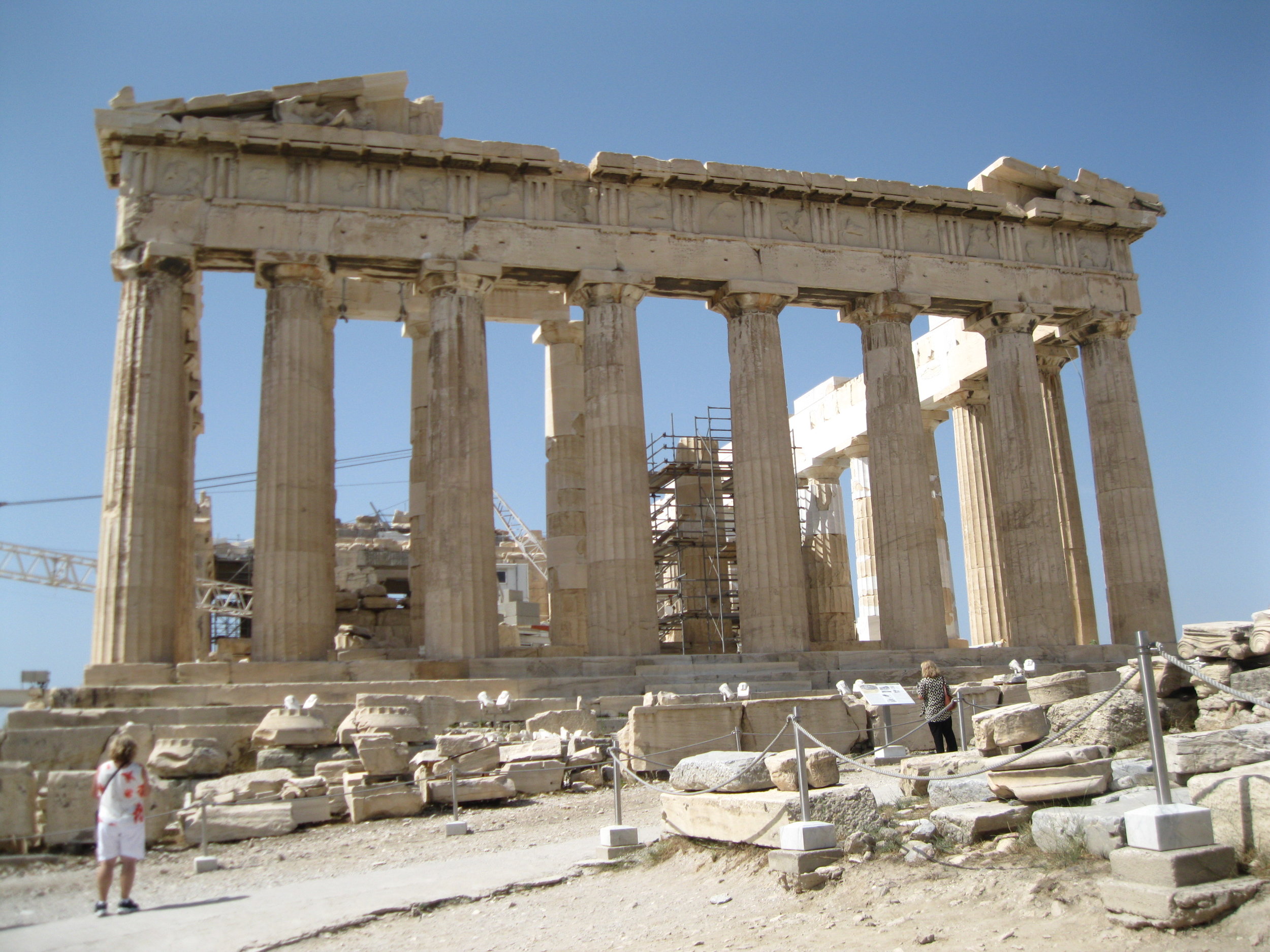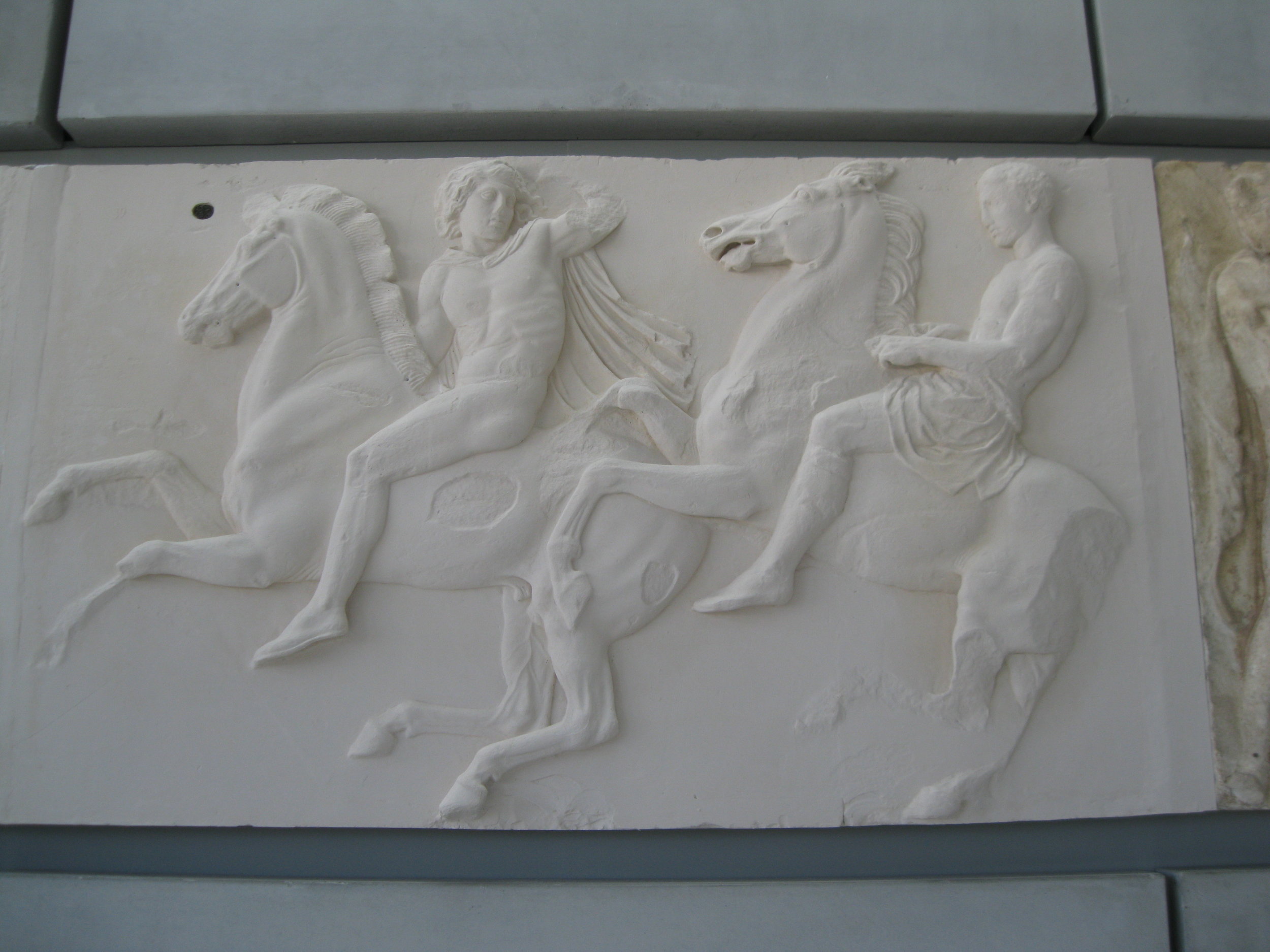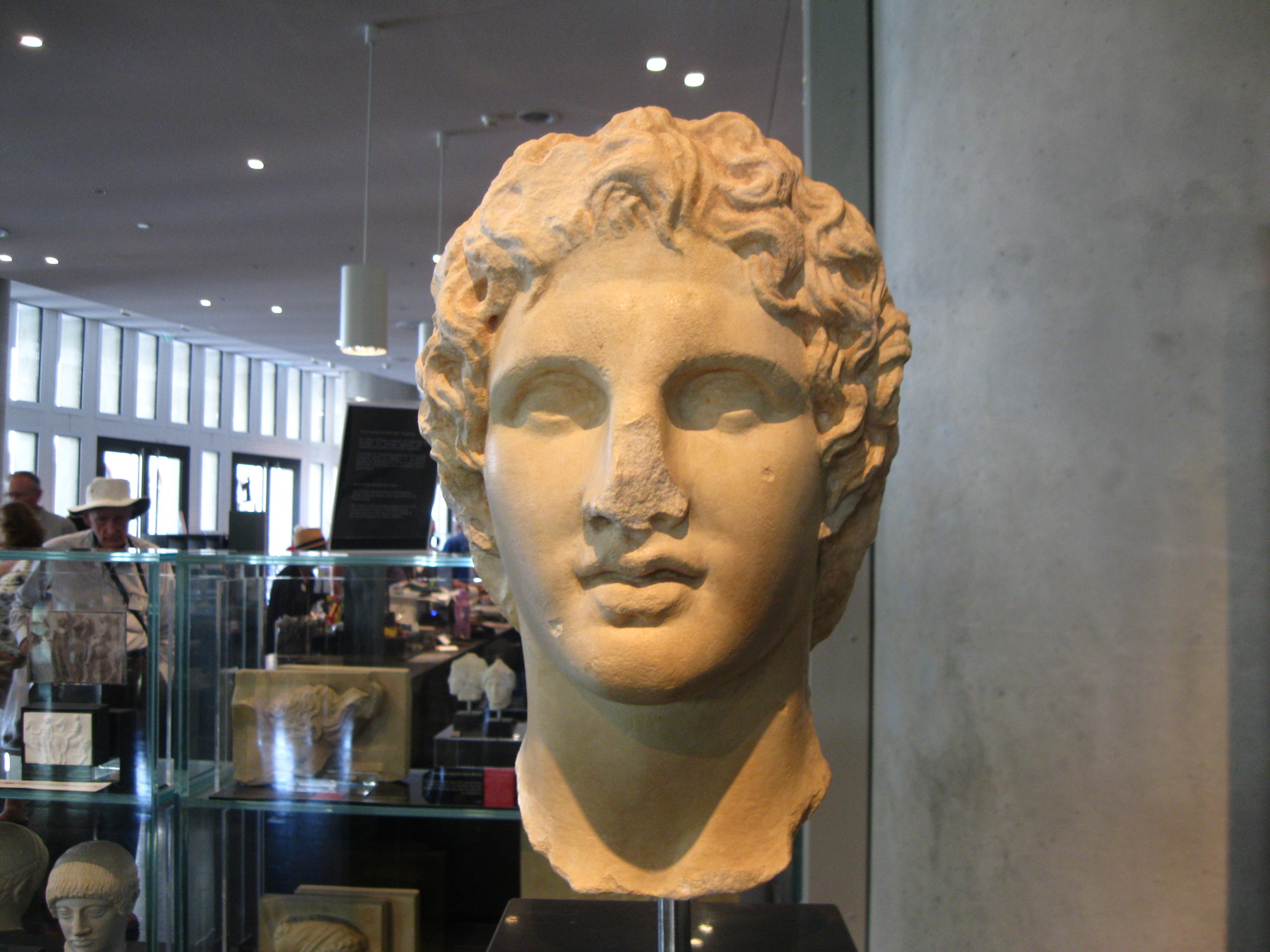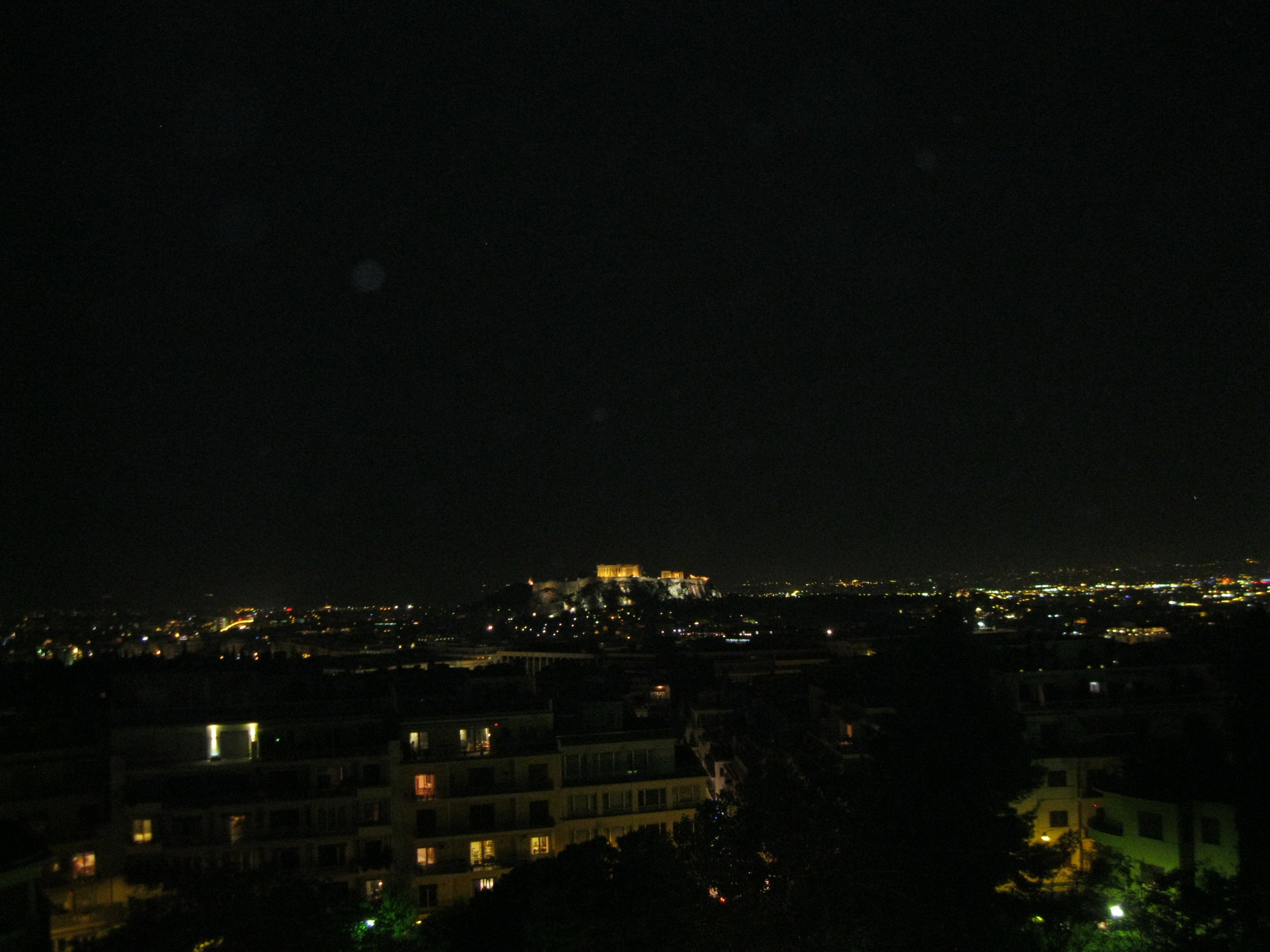Even casual readers of this blog will have surmised my passion for the Greeks in general and Alexander the Great in particular. So when I saw an ad for Times Journeys’ “The Legacy of Alexander the Great” tour on the back page of The New York Times one late winter day and learned that there was one single room left for the late summer voyage, I jumped at the chance.
Not. Even though it was Alexander, I kept finding excuses. Work, home, fear of flying, money, did I mention work? Besides, I needed the money to self-publish the second book in my series, “The Games Men Play.” I needed a sign. Then I got one in the form of a contract for the book.
No more excuses. Spurred by the office goddess Robin – without whom I would never have made it to Greece – I got on a 5:50 p.m. Sept. 16 flight at Newark Liberty International Airport that would arrive 10:30 local time the next morning at Athens International Airport.
Self, I said, you flew all the way to Indonesia. Athens is going to be a stroll in the park.
But that was with my sister Gina. Now I was traveling alone for the first time in my life. OK, hardly Lindbergh on his transatlantic solo flight to Paris. But still.
The young man next to me looked like Jude Law and said he would help me with my carry-on. I took this as another good sign.
I read our Times Journey material, watched “The Man Who Knew Infinity” (excellent) and part of “A Bigger Splash,” which made me nod off.
The next thing I knew I was clearing customs in Athens and approached by a driver with a Times Journey sign. I also met a few of my fellow Alexandrians, an immediately collegial group of sophisticated American professionals – Ted and Victory, a charming couple, and Cat, with whom I rode to the hotel and who was an instant soul-mate with her love of Mary Renault’s Alexander books and the ballet. What was it my neighbor had said? “You’re not going to be alone because you’ll be with people who share your interests.” Indeed.
Athens, we soon discovered, is a beautiful city of elegant classical, neoclassical and Victorian buildings, including signature cream-colored, terraced apartments that hug the hilly terrain. Here, as throughout Greece, mountains that brush the sky easily meet the sea in a steep landscape that created some challenges even for a prodigious walker like myself. (I wouldn’t call Athens a walkable city in the way New York is.)
After a half-hour ride we arrived at St. George Lycabettus Boutique Hotel only to discover that some of the group’s rooms weren’t yet ready. This turned out to be a terrific stroke of luck for it enabled me to talk with our expert, David Ratzan, head librarian of the Institute for the Study of the Ancient World at New York University. I was trying to reconcile the glory that was Greece under Alexander’s conquest of the Persian Empire with the hard economic reality of today. But David pointed out that Alexander was funding that conquest as he went along, creating refugee situations as he went. So perhaps the past and the present had more in common than I thought.
By now, David’s room was ready and he offered it to me in exchange for mine, which turned out to be the next stroke of luck, for it had a balcony with a view of the Acropolis and the crown jewel of its temple complex, the Parthenon.
I couldn’t believe it. Here was the citadel whose desecration by the Persian emperor Xerxes in 480 B.C. had sealed Alexander’s fate some 150 years later as the Greeks’ avenger. Here was the place where Alexander would send 300 Persian shields after the Battle of the Granicus, David said. And here was the site of the Parthenon, dedicated to Athena, the goddess of wisdom, whom I had identified with since childhood and who often appeared on the obverse of coins bearing Alexander’s likeness.
I went upstairs to the hotel’s restaurant for a Greek salad – the first of many excellent ones – and gazed out at the Acropolis. I gazed at it some more that evening as the group had its first meet-and-greet in the restaurant. Then I went back to my room and sat out on the balcony, gazing some more, writing and listening to the sounds of laughter, accordions and motorbikes from the café below. I felt like Hemingway.
But what is mesmerizing at a distance can be a challenge up close. The next day we set out by luxe tour bus for the Acropolis itself. First stop was the Acropolis Museum, which set the tone for all our museum visits. Museums in Greece are modern, well-lit and climate-controlled with superb traffic flow. The Greeks have an ancient culture of which they are justly proud and they know how to display it.
The juxtaposition of marble friezes with the cleaner but less valuable plaster copies was fascinating. Many of the marbles are now part of the British Museum as the Elgin Marbles, so-called because Thomas Bruce, the seventh earl of Elgin, obtained them from the Ottoman Empire that controlled Greece in the early 19th century. Was he a looter or a savior? I myself like to see a country keep its treasures.
At least the Greeks still have the Acropolis Alexander, so handsome with a slight smile at play on his lips. The sculpted head was, David said, the Greeks’ attempt to control their wild-eyed overlord. As if.
After a pit stop in the gift shops, we made our assault on the Acropolis – in 95-degree heat. The Acropolis is a challenge on the best of days with its stony paths, slippery marble and too-few staircases with railings. In that situation, it was all I could do to watch my footing and keep from passing out. I couldn’t really enjoy the Parthenon at that moment, though I remember thinking how still the columns were in their dynamism, how dynamic in their stillness. This was the modern dancer Isadora Duncan’s great insight when she visited the Parthenon. I assume it was in cooler weather.
Fortunately, the descent was shorter and lunch on Hadrian Street in the Plaka, the old historic district, which featured a marvelous eggplant dish, did much to cool, nourish and revive us. Afterward we toured the Agora, the ancient marketplace and birthplace of democracy with its Roman temple. But my mind kept wandering back to the modern agora with its cafes and antiquarian booksellers, its haunting musicians and street vendors.
That evening at the hotel’s balcony restaurant, I savored a virgin mojito, a plate of pasta and my time with Cat, Roberta and one of our tour group’s two Larrys, the cappuccino lover. Back in my room, I stayed up way too late writing and taking in the Acropolis and Parthenon once more.
Even when I went to bed – and should’ve been asleep as we were leaving for Thessaloniki the next day – I kept the curtains parted, framing the gleaming marble in the cooler evening air.
You’re not so tough now, I said to the citadel. And at last I was able to marvel at what we had accomplished – all of us making it to the top in arduous conditions, me included thanks especially to Bill and Penny, a lovely couple whose kindness to me won’t be forgotten.
It occurred to me then that we truly were Alexandrians – exhorting one another on, spurred by the passion and drive of tour manager Eleni Zachariou with her bright red umbrella.
In front of the Parthenon, we had posed for a group photograph. It was a most Alexandrian moment.
In the next installment: Hello, Thessalonkiki



